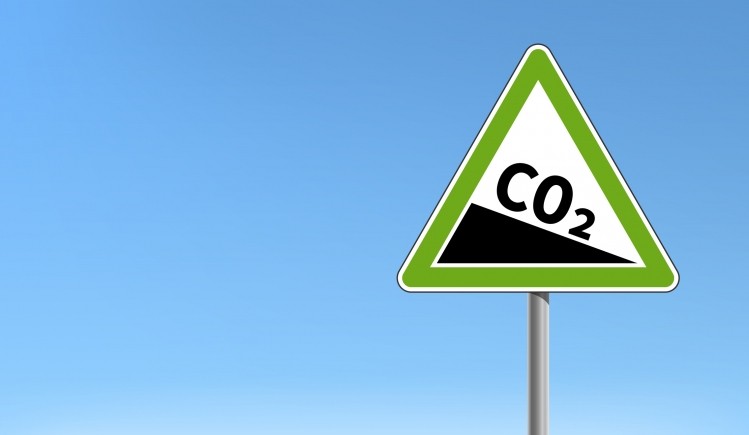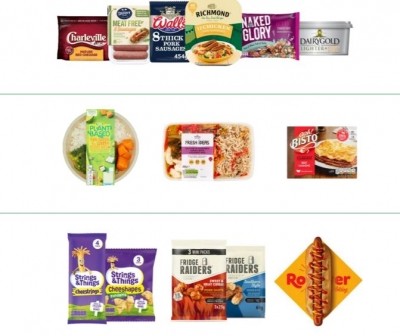Kerry spots opportunities for gut health and food protection solutions as it targets net zero emissions by 2050

The new sustainability strategy – called Beyond the Horizon – also targets reaching over two billion people with sustainable nutrition solutions by 2030.
The Irish ingredients group said it would achieve this by further enhancing and expanding its solutions portfolio across the nutrition spectrum.
“Consumers want food and beverages that are healthier and taste great while respecting the planet,” the company said. “Kerry is at the forefront in anticipating and leading the industry’s response to this complex challenge through its consumer insights, world-class innovation, application expertise and a long history of creating taste and nutrition solutions in a sustainable way.”
Edmond Scanlon, Chief Executive Officer of Kerry Group, said: “The food industry plays a crucial role in society and has long recognised the need to transform to meet conflicting challenges such as obesity, malnutrition and food waste, all while facing a growing pressure on resources. Supplying the right nutrition, in the right quantities, in the right way, is how we will collectively solve this challenge.
“Kerry’s vision is to become our customers’ most valued partner, creating a world of sustainable nutrition. This vision is underpinned by our industry-leading capabilities and global scale which is leading to significant opportunities across the globe. In recent times we have seen a step change in customer innovation and we will continue to play a leading role in responding to the global nutritional and environmental challenges and changing consumer demand by co-creating with our customers right across the nutrition spectrum over the coming decade.”
Kerry estimates it has increased its volume output over 20% in five years, whilst at the same time reducing its overall C02 intensity by almost 23%.
The sustainability plan includes new targets that it said address key impacts by 2030 in the areas of nutrition and health, emissions, energy, circular economy, raw materials, and social impact:
These objectives include:
- Reaching over two billion people with sustainable nutrition solutions by 2030
- Reducing operational emissions by 33% by 2030, reaching net zero before 2050 and reducing emission intensity of the supply chain by 30% by 2030
- Ensuring that all plastic packaging will be reusable, recyclable or compostable by 2025
- Halving food waste by 2030 and diverting all waste from landfill
- Sustainably sourcing all priority raw materials by 2030
- Improving diversity while continuing to foster a healthy and inclusive workplace that reinforces our goal to be the first choice for the best talent
Science-based targets
Juan Aguiriano, Head of Sustainability for Kerry Group, said: “We are setting science-based climate targets that will see us reduce our emissions across our operations and supply chains as we work towards net zero emissions.”
He said the company supports a more circular approach on plastics and waste with a target for all plastic packaging to be reusable, recyclable or compostable by 2025 and we will ensure that all our priority raw materials are sustainably sourced by the end of the decade.
He added: “We understand that this is not a journey we can undertake alone, and we are committed to working with our customers to co-create and innovate for more sustainable consumer diets.”
Tapping shifting consumer trends
The company further revealed it is keen to explore the many sectors where demand has been accelerated by COVID. One issue brought to a head by the pandemic is food waste. Kerry has consequently been looking to build up its portfolio around food protection.
Scanlon said: “30% of food is wasted. If we can improve the shelf life of that food and the secondary shelf life of that food after it gets opened that has a huge impact on food waste.”
The company’s M&A strategy and investments into ‘pro-active’ health ingredients further allow it to tap the trends accelerated by COVID, he observed. In 2015 Kerry acquired Wellmune from Biothera Inc., a natural food, beverage and supplement ingredient claimed to help strengthen the immune system.
“There's huge value to be created by incorporating products like that into the diet,” noted Scanlon. “We’ve seen customers take those types of products and incorporate them into all sorts of food and beverages like snacks and lattes.”
Probiotics are also gaining traction amid the pandemic, according to the CEO. In 2017 Kerry acquired the patented GanedenBC30 probiotic ingredient designed to provide digestive and immune health support in everyday food and beverage products.
“Typically, you'll find probiotics in dairy or chilled beverages. But with the technology we have we can take it into baked items and hot drinks. When we engage with customers, they say 'this gives us an opportunity to take our product, regardless of where it is in the nutrition spectrum and make it better’. That's when we are at our best - we help our customers move their products along that nutrition spectrum."
Scanlon insisted that the company’s future investments and sustainability strategy are completely interdependent. “Our sustainability strategy does inform our M&A and will continue to do so.”
He added: "What we've seen through COVID is an acceleration of nutritional consciousness. Food safety has gone from middle of the pack to the absolute number one priority. Food safety and food security has shot onto the priority list across all countries.”

























